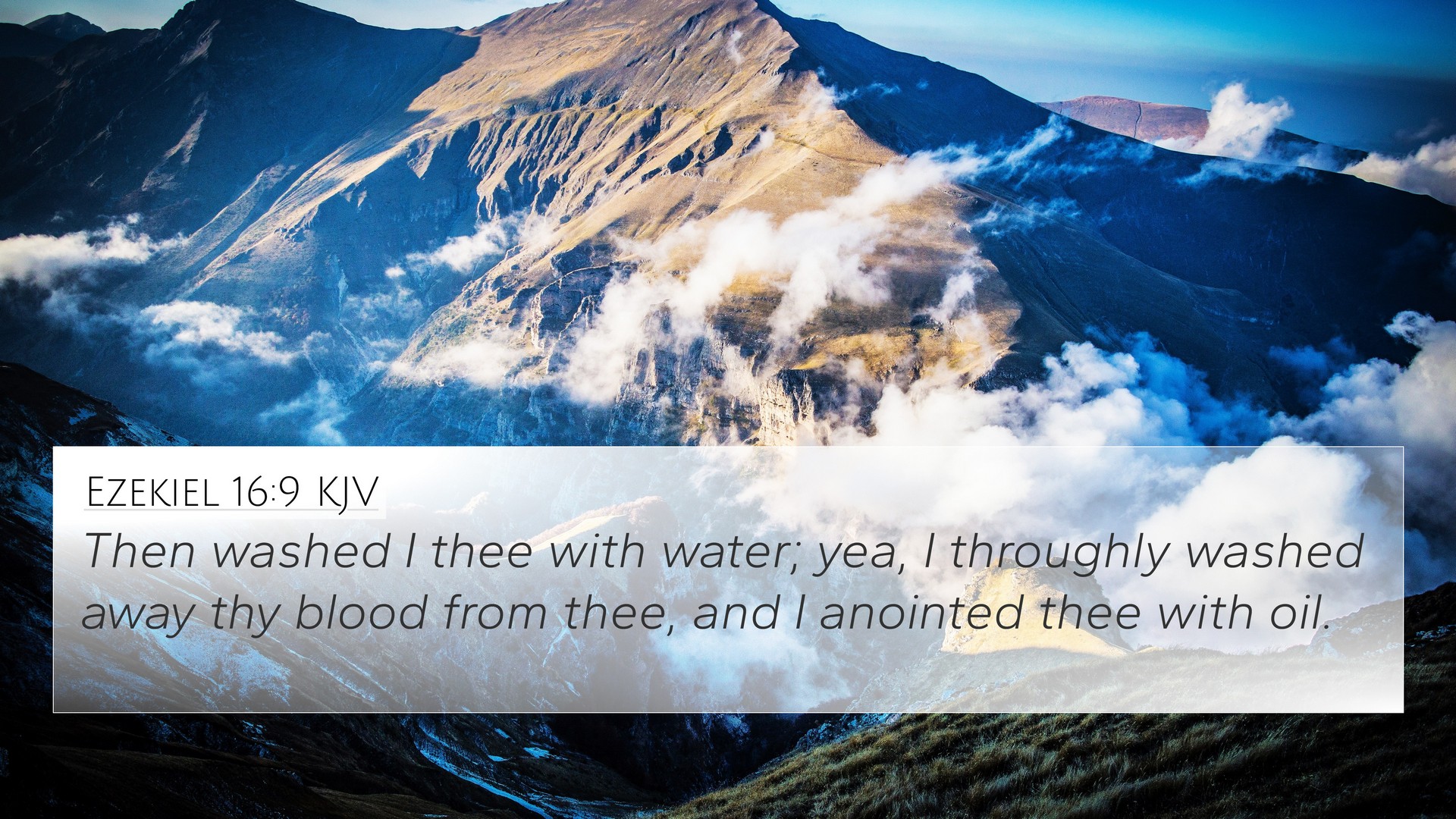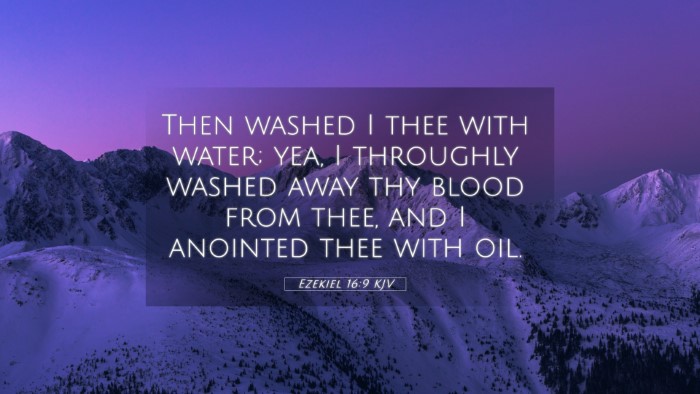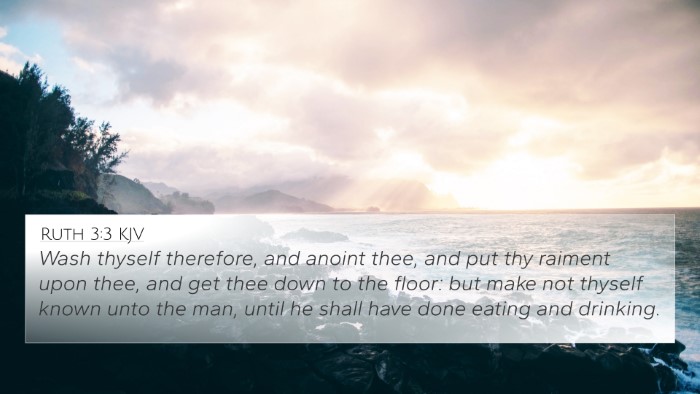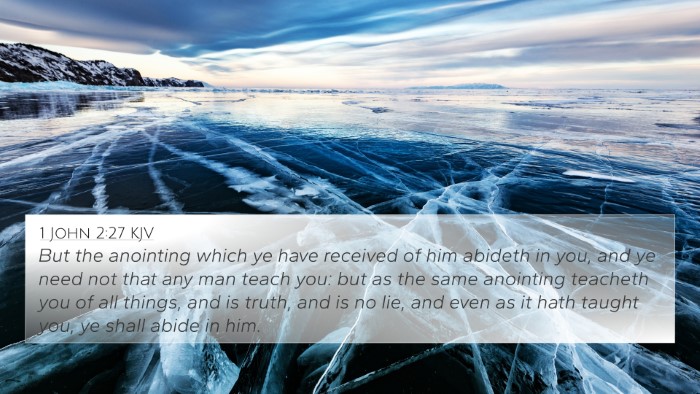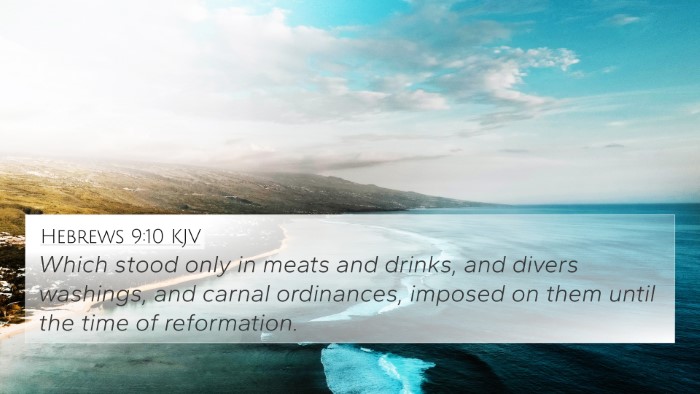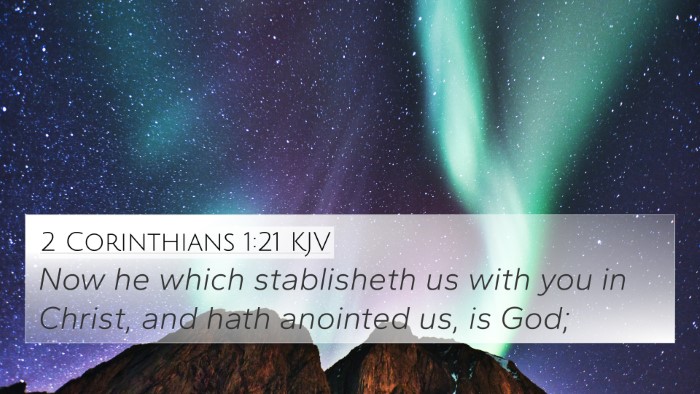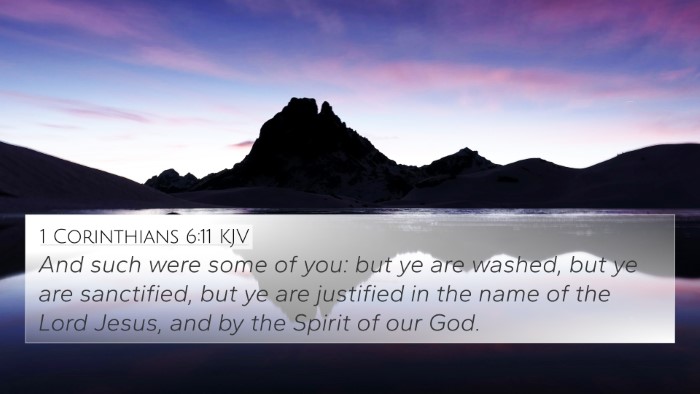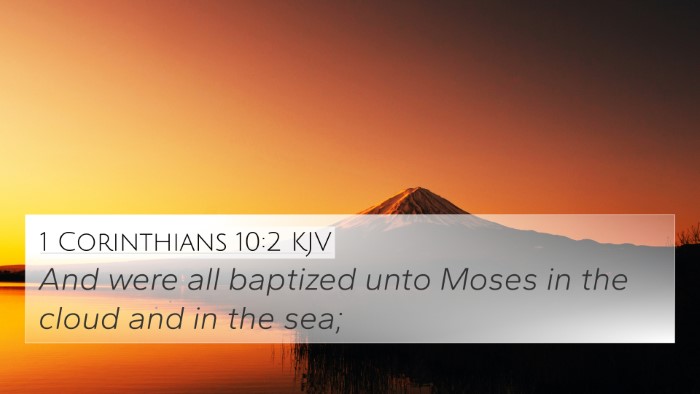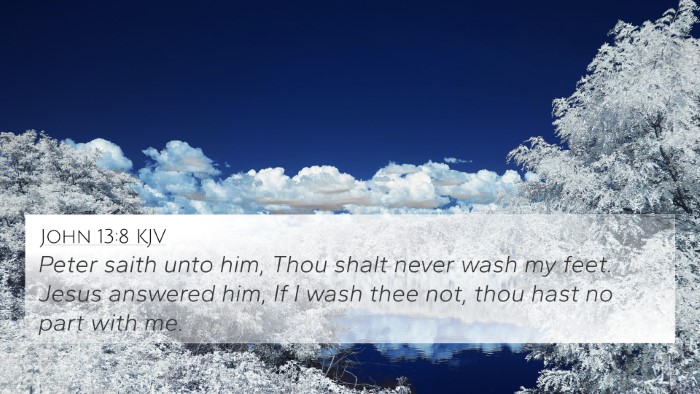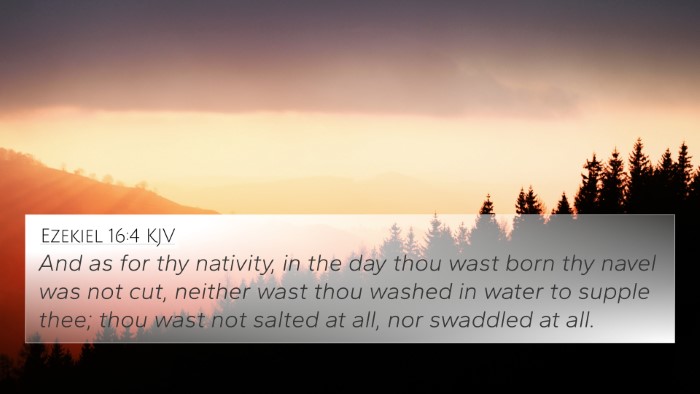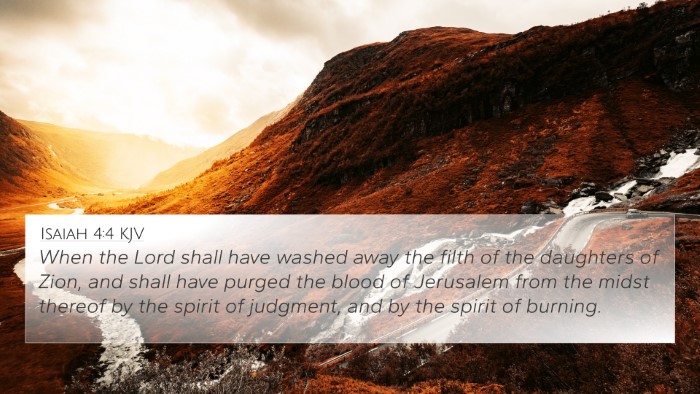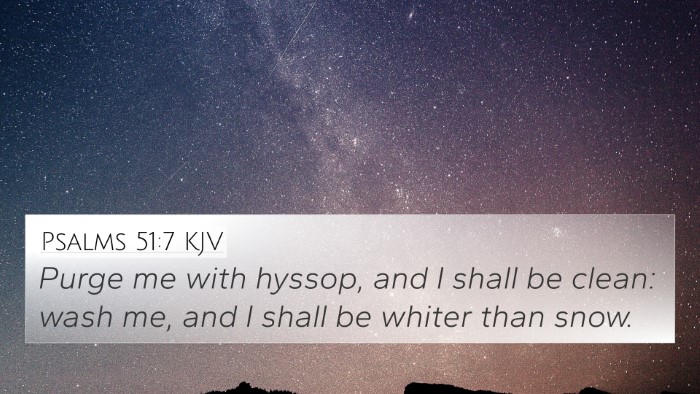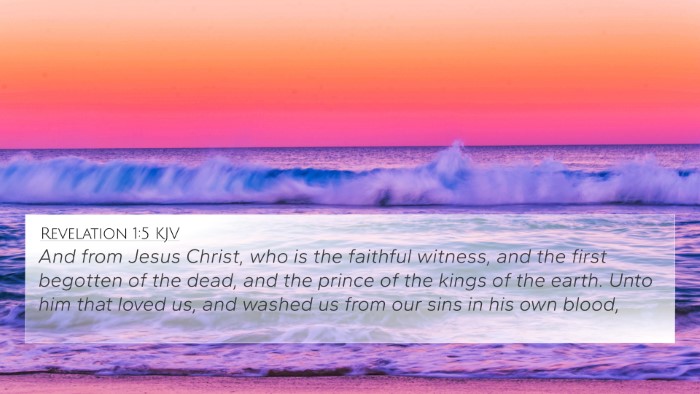Ezekiel 16:9 - Understanding the Verse
Ezekiel 16:9 states: "Then washed I thee with water; yea, I thoroughly washed away thy blood from thee, and I anointed thee with oil."
Summary of the Verse's Meaning
This verse is a part of a larger allegorical narrative where God speaks through the prophet Ezekiel, portraying the relationship between Him and Jerusalem as that of a husband to his wife. In this verse, the act of washing signifies cleansing and purification, while the anointing with oil symbolizes the bestowal of honor and blessing. The blood mentioned reflects the guilt of sin that God washes away, indicating His mercy and readiness to forgive.
Insights from Public Domain Commentaries
- Matthew Henry: He interprets this washing as God's grace in removing the guilt and corruption from His people. Henry emphasizes that this cleansing is essential for a covenant relationship, maintaining that God lovingly nurtures His people, preparing them for a life of holiness.
- Albert Barnes: Barnes highlights the significance of anointing with oil, pointing out that it symbolizes not only consecration but also joy and prosperity. He sees the washing away of blood as God’s intervention, freeing Israel from the consequences of her idolatry and unfaithfulness.
- Adam Clarke: Clarke expounds on the metaphor, interpreting it as God's provision for the sanctification of His people. He underscores that the washing is both literal and spiritual, emphasizing the necessity of spiritual regeneration in the life of the believer.
Key Themes and Biblical Cross-References
This verse resonates with several key themes in the Bible, particularly about cleansing and renewal. Here are some notable cross-references that illustrate these connections:
- Psalm 51:2: "Wash me thoroughly from my iniquity, and cleanse me from my sin." This verse reinforces the theme of spiritual cleansing.
- Isaiah 1:16-18: "Wash you, make you clean; put away the evil of your doings from before mine eyes..." God calls His people to repentance and promises forgiveness.
- Romans 6:4: "Therefore we are buried with him by baptism into death: that like as Christ was raised up from the dead by the glory of the Father, even so we also should walk in newness of life." This verse ties the concept of washing to a new life in Christ.
- 1 John 1:7: "But if we walk in the light, as he is in the light, we have fellowship one with another, and the blood of Jesus Christ his Son cleanseth us from all sin." This emphasizes ongoing cleansing through the blood of Christ.
- Titus 3:5: "Not by works of righteousness which we have done, but according to his mercy he saved us, by the washing of regeneration, and renewing of the Holy Ghost." This highlights the importance of divine mercy in the cleansing process.
- Hebrews 9:14: "How much more shall the blood of Christ, who through the eternal Spirit offered himself without spot to God, purge your conscience from dead works to serve the living God?" This reference connects the Old Testament themes with New Testament fulfillment in Christ.
- Revelation 7:14: "These are they which came out of great tribulation, and have washed their robes, and made them white in the blood of the Lamb." This verse illustrates ultimate redemption and purification through Christ.
Comparative Analysis and Thematic Connections
The act of washing in Ezekiel 16:9 serves as both a literal and metaphorical cleansing and can be compared across scripture to understand more profound theological implications:
- Thematic Link: Just as God washes His people in Ezekiel, He also calls for renewal and sanctification throughout the scriptures. This parallels various calls to repentance, from the prophets in the Old Testament to Jesus's call for new life in the Gospels.
- Connections in the Gospels: In the Gospels, particularly in John's writings, the imagery of washing and cleansing aligns with Jesus's ministry. For example, in John 13, Jesus washes His disciples' feet as a display of servant leadership, illustrating the spiritual cleansing He offers.
- Old Testament Purification Rites: The ritualistic cleansing found in Levitical law can be seen in the context of Ezekiel's insights, where physical cleansing symbolizes the essential need for spiritual redemption.
- Insights from Pauline Epistles: Paul consistently emphasizes the transformative nature of being washed by the Spirit, portraying a believer’s new identity in Christ as cleansed and anointed for service.
Skinning through Inter-Biblical Dialogue
Understanding Ezekiel 16:9 necessitates examining the verse alongside other passages that speak about cleansing and anointing. This can illuminate the Christian doctrine of salvation and God's character:
- Inter-Biblical Themes: The recurring theme of God's covenant relationship with His people underscores the importance of purity and consecration, as seen both in the establishing of covenants with figures like Abraham and in the New Covenant through Jesus Christ.
- Linking Scripture Analysis: Cross-referencing these texts can enhance Bible study, enabling readers to view God's redemptive plan as cohesive through different books and covenants.
- Tools for Deeper Understanding: Using a Bible concordance or cross-reference guide can facilitate a more profound understanding of how different scriptures iterate the ideas of cleansing, sin, and vindication.
Conclusion
Ezekiel 16:9 symbolizes profound spiritual truths about God's readiness to cleanse His people from sin and prepare them for a life of righteousness. By contemplating the broader scriptural context, one can appreciate the vast tapestry of God’s redemptive work through history, tying together various biblical themes and leading to transformative insight for believers.
